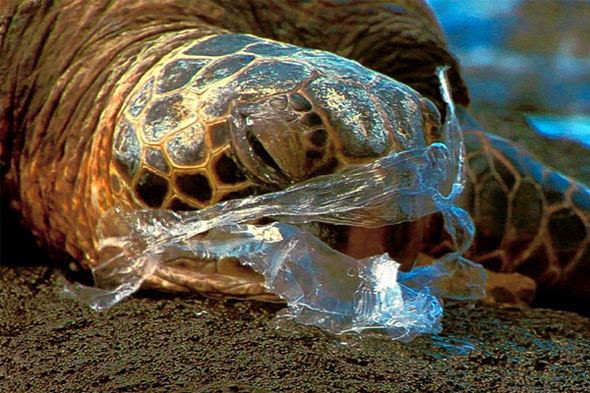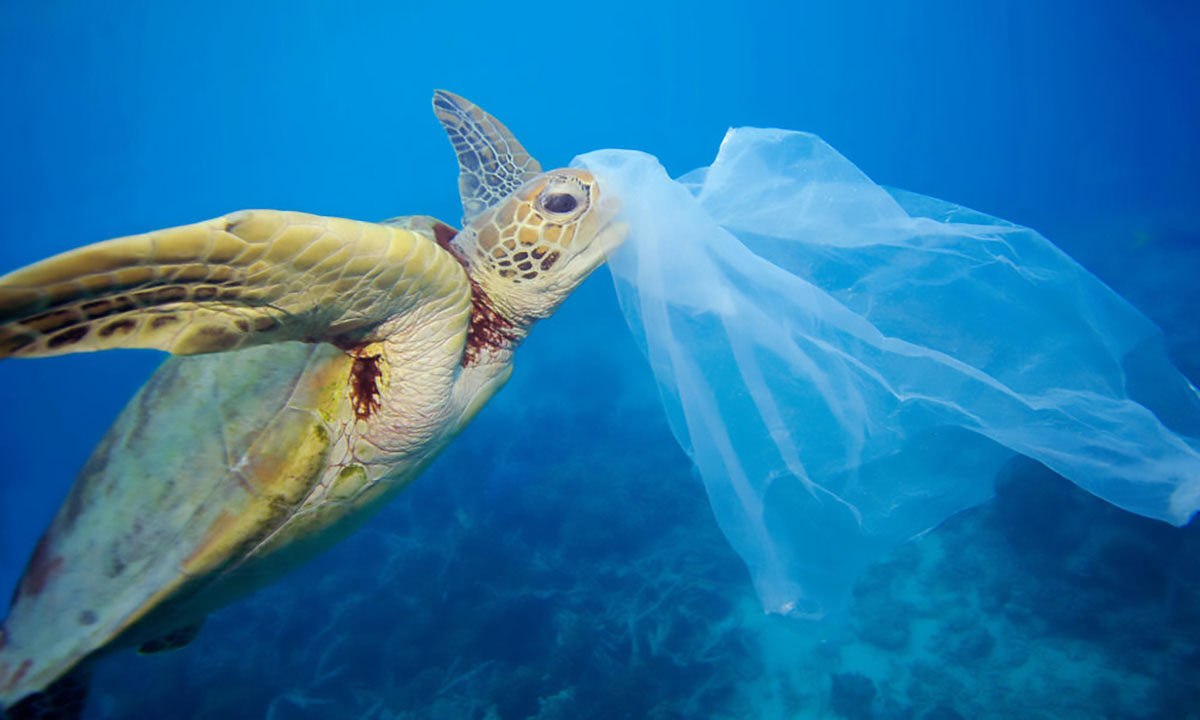The ministry of municipalities is encouraging Qatar residents to use biodegradable and environmentally friendly alternatives to plastic single-use bags.
It’s the end of the month and you’re on your way home from the market carrying your groceries in plastic bags. Once you’re home, you store the items in the fridge and are left with 6 empty plastic bags, wondering what to do with them – do they go in the trash?
The probability of the plastic bags being recycled are not so high. Some may find their way to the sea, confused as food by turtles, fish and birds whilst others will roam the streets until they get caught up in the fate of other animals. The vast majority, however, will turn into micro-plastics consumed by us.
The 3rd of July marks International Plastic Bag Free Day, a campaign launched by Zero Waste Europe’s Bag Free World, to encourage the use of eco-friendly products including paper and cloth bags and avoid single-use plastic bags.
With 5 trillion single-use plastic bags used globally every year and 300 million tonnes of plastic produced every year, which is equal to the weight of the world’s entire population, a United Nations Environmental Programme (UNEP) report estimates that by 2050 the ocean will have more plastic than fish.
The misuse of single-use plastic bags has become increasingly more harmful over the years, as people have become accustomed to taking more bags than necessary when shopping and proceed to throwing them out rather than reusing them, resulting in an alarming rate of pollution.
Further harm caused by plastic bags have been found in animals, which confuse the bags as source of food. As the animal attempts to chew the plastic, it blocks their digestive system and sometimes causes them to get entangled in it, which may lead to choking, starvation, deformation and reduced reproductivity.

What can be done to help?
The biggest problem we face with plastic bags is that they take years to decompose, causing a long-lasting toxic impact on the planet.
The first and most obvious contribution to saving the earth from further toxicity, is to stop using single-use plastic bag and exchange them instead with paper or cloth bags.
Last month Qatar announced a ban on single use-plastic bags, which will be effective on 15th November 2022.
The ministry of municipality is encouraging residents to start using biodegradable and environmentally friendly alternatives, such as multi-use plastic bags, biodegradable bags and bags made out of paper or cloth.
Is this sustainable with the World Cup upcoming?
As the FIFA World Cup Qatar 2022 draws closer, steps have been taken to ensure that the mega-event is not perceived as a disruption for sustainability goals.
Early last month, FIFA’s president Gianni Infantino delivered a video message raising a “Green Card for the Planet”, to bring about awareness about the environmental conservation taking place ahead of the FIFA World Cup Qatar 2022.
FIFA released its Climate Strategy last November at the United Nations Climate Change Conference (COP26), reiterating its commitment to the United Nations Framework Convention on Climate Change, which includes a goal of cutting emissions in half by 2030 and reaching net zero by 2040.
The Supreme Committee for Delivering Legacy (SC)have also committed to environment conservation and sustainability.
Bodour Al Meer, SC’s Sustainability Director said, “waste reduction has been a major focus of ours from the beginning, from the moment we broke ground to build our stadiums.
Since then, our FIFA World Cup Sustainability Strategy has launched several initiatives to raise awareness about waste and recycling, minimise waste and achieve world-class recycling rates.”
Whilst there is yet a long way to achieve an optimal eco-friendly state, no action is small when it comes to protecting the environment. Your groceries will find more comfort in a biodegradable bag until they get to the fridge, as will our planet.







